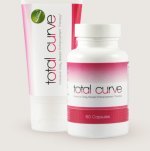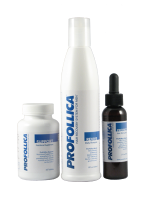Natural Health Medicine
Natural health medicine (herb medicine, herbalism, phytotherapy, botanical medicine, or medical herbalism) is one of the branches of Naturopathic medicine. It involves the study and use of the medicinal properties of plants or plant extracts to create systems of therapy that build and restore health and wellness.
The extent of herbal
medicine is occasionally expanded to include substances that are not derived from plants e.g minerals, certain parts of animals, shells as well as fungal and bee products.
Natural Health Medicine Therapy
|
Herb medicine is the oldest form of a "health care system" known to mankind. It was the foundation of many of the
traditional healing therapies used in many cultures for thousands of years before the advent of "modern" medicine. History is replete with details of diverse cultures, from all over the world, practicing and benefiting from
traditional medicines. |
Scientific investigations and studies have validated the early
uses of many of these
healing plants. They are now increasingly being
used to treat modern diseases. A good example is St Johns Wort
Herbal medicine encourages a holistic approach by working with nature and the innate self-healing powers of your body to treat disease, restore and maintain optimal health and wellness. Non-invasive treatment, minimal use of drugs and surgery are also at the core of herbal medicine.
Self-healing? Well, this aspect of your body can be better appreciated if you bear in mind that biological balance (homeostasis) is one of the major distinctive traits of all healthy living systems.
The natural state of your body is to be in perfect health and this is the biological balance that your body is always striving to achieve and maintain at all times.
Medicinal Properties of Healing Plants
Just where do herbs "get" their medicinal properties? To answer that question, let's take a few steps back and get to know some of the "activities" that take place within plants.
The metabolic processes and activities of plants result in the production of a complex and bewildering number and array of chemicals essential for life sustaining biological functions.
Over 10,000 of these compounds have been identified so far - less than 10% of the estimated total. These chemicals, or more accurately phytochemicals, are derivatives of four major biological configurations (glycosides, terpenes, alkaloids and polyphenols) and can be divided into two major categories:
- Primary metabolites: These are found in all plants and are essential for growth and development. Examples include energy rich sugars and carbohydrates such as sucrose and starch, structural components such as cellulose, informational molecules such as Deoxyribonucleic acid (DNA) and Ribonucleic acid (RNA), and pigments such as chlorophyll.
- Secondary
metabolites: These compounds serve more specific functions and are
found in a narrower range of plants. They serve a specific function particular to the plant they are found in. Some may serve as pheromones...
used to draw insects for pollination. Others function as toxins... used
to fend off predators such as herbivores, insects, fungi e.t.c.
It's from the secondary metabolites category that certain compounds have been
found to have beneficial therapeutic actions in humans when consumed.
This fact has been exploited for thousands of years by humans who have used them as medicines.
Some of these plant compounds have been, in the relatively recent past, processed to produce drugs. Examples include digoxin from the foxglove, quinine from the cinchona, inulin from the roots of dahlias and the opiates morphine and codeine from the the opium poppy.
These beneficial plant compounds are now the cornerstone for a large number of pharmaceutical drugs used today for the treatment of blood pressure regulation, heart disease, asthma, pain remedies and other conditions of ill health.
Natural Health Medicine Today
Traditional healing therapies have had their fair share of critics over the years, some genuine, others, with vested interests, not quite so. Quacks out to make a quick buck have also not helped either.
The big pharmaceutical
companies? Profits rather than healing seems to be their #1 priority. The original noble goal of helping people stay healthy has been tossed into the dustbin of history. The focus now is profits, profits and more profits.
However, despite the above, what is not in doubt is that for several thousands of years, across diverse cultures, millions and millions of humans have been beneficiaries and satisfied users of ethically administered natural health medicine.
To this very day, the World Health Organization estimates that herbal medicine is the dominant form of therapy for 80% of the worlds population. That's an over several thousands of years old strong and solid vote of confidence.
Related Articles
The Benefits of Natural Health Medicine
Traditional Chinese Medicine. A General Overview
Read in Your Language
Sign up for our Email newsletter



*** Comments
Have your say about what you just read! Leave me a comment in the box below.